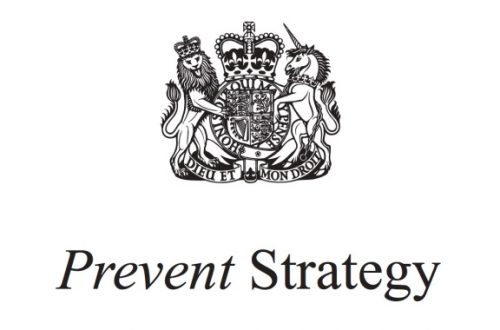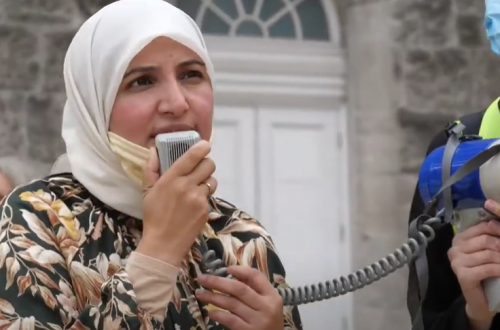This is a guest post from the British Israel Coalition
In the run-up to the performance in Edinburgh by Batsheva, the acclaimed Israeli dance company, activists from the Scottish Palestine Solidarity Campaign (SPSC) plastered the centre of town with anti-Israel stickers.
Stickers were placed across the city, as one Scottish activist told us, “on bins, lamp posts, sign posts, bus stops, traffic lights, and the telephone equipment boxes you sometimes see in the street … and can be found on The Mound, North Bank Street, George the 4th Bridge, North Bridge, Canongate, Victoria street and Princess Street.”
Occasionally, vandalism in the name of a political cause can be looked upon favourably. But the anti-Israel hatred of the SPSC is no political cause; it is merely hysterical anti-Semitic hatred. Thankfully, Edinburgh Council recognised such bigotry as inexcusable, and following a campaign by the British Israel Coalition, with the help of Scottish Friends of Israel, swift action was taken.
Following our initial letters to Edinburgh Council, their equality office immediately “reported the stickers to Lothian and Borders Police as a hate crime issue” and “sent in an ‘immediate action’ request to the City Centre Cleansing Manager to identify the stickers and remove as many as possible within the locality known to us at that time.”
Today, the Equality Office contacted us again to inform us that as part of the “Council’s joint patrolling arrangements with the Police, a CEC Environmental Warden and Police Officer caught the person responsible for these flyers in situ in August.”
“This has resulted in him being issued with a Fixed Penalty Notice and his details have been taken with regards to follow up action which will consist of him being invoiced for the cost of removing these stickers by the cleansing teams.”
The Scottish Palestine Solidarity Campaign almost makes the London-based PSC look moderate. It is much less careful than its English counterpart to hide its true colours. One example among many is an article published in 2008 by its chair, Mick Napier: just after the terrorist attack on the Mercaz Harav Yeshiva in Jerusalem, Napier vindicated the murder of the students on the premise that the students were monsters in training. Unable to even avoid rather less subtle medieval anti-Semitism, he also claimed Jews were stealing Palestinian organs and were using Arabs for medical experiments.
The SPSC offers a free book to all new members: Shlomo Sand’s The Invention of the Jewish People – a book whose central argument is that the Jewish people, as a single collectivity, do not exist. For many people, this attempt not just to refuse the Jewish people a homeland, but also to deny them their very identity, rather gives away the true motivations of this vile group.
Furthermore, the SPSC recently voiced support for Paul Donnachie, a student at St. Andrews University in Scotland, who was charged and found guilty of racially abusing a Jewish student. Despite the ruling, the SPSC continue to voice their support for Donnachie’s actions.
Putting a stop to SPSC vandalism is a very small victory within a much larger battlefield; but it is important nonetheless. For many years, Harry’s Place has expertly documented the naivety and exploitation that frames Government relations with anti-Israel and Islamist groups. As a result, it can be tempting to become disenchanted with local Government.
But Edinburgh Council acted swiftly and properly. Just as we rightly hold local Government to account when it facilitates extremist groups, it is also proper to thank them when they do the right thing.
It is important to remember than when presented with the bare facts, public servants have good intentions and can recognise anti-Israel hysteria as not the political struggle that groups like the SPSC claim to represent, but rather just as anti-Jewish rhetoric no different from the old hatreds.


